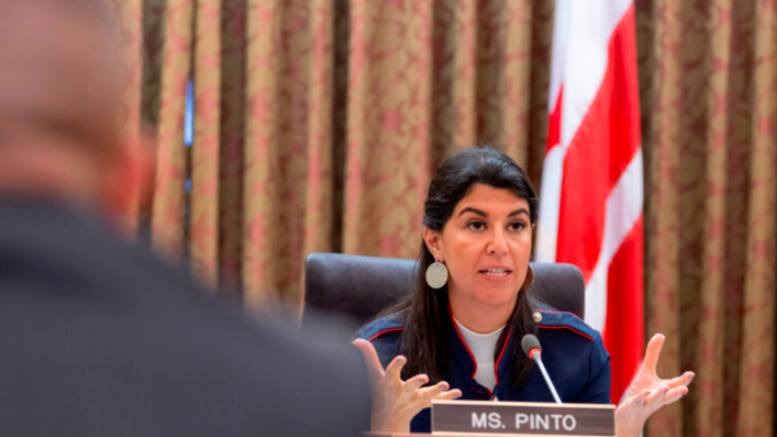Ward 2 Councilmember Brooke Pinto has introduced a comprehensive 90-page omnibus bill aimed at addressing public safety concerns in Washington, D.C. The bill combines provisions from various crime bills under consideration by the D.C. Council. Pinto, who chairs the council’s judiciary committee, emphasized the need for legislative interventions to combat rising crime and violence promptly. The proposed legislation covers a broad range of measures, from increased penalties for certain gun crimes to police reform rollbacks and the establishment of a culinary and hospitality training program at the D.C. Jail.
The bill responds to the city’s surge in homicides, carjackings, and vehicle thefts, with Pinto urging swift action. If passed, certain provisions could take immediate effect upon the mayor’s signature, while others would require funding in the next fiscal year’s budget. The omnibus incorporates elements from bills introduced by Mayor Muriel Bowser, Pinto, and At-Large Councilmember Robert White. Notably absent is a controversial proposal from Pinto allowing random stops or seizures of individuals on probation for gun convictions, which raised constitutional concerns and potential racial disparities in policing.
While some provisions are expected to gain broad support, others, such as rollbacks of police accountability measures, are likely to spark significant debate. Public hearings on components of the legislation have revealed divisions between those advocating for “tough on crime” strategies and those concerned about regressive approaches that could lead to mass incarceration and disproportionate impacts on Black communities. The bill has drawn both praise from Mayor Bowser and criticism from the ACLU of D.C., which argues that certain measures open the door for abuse of power.
The omnibus bill encompasses changes to penalties for gun-related offenses, strangulation, retail theft, and crimes targeting specific groups. It revives an anti-mask provision, introduces “drug-free zones,” and addresses pretrial detention, DNA testing, and access to GPS data. The legislation also seeks to enhance video surveillance, roll back police reforms, and improve food quality at the D.C. Jail. Additionally, it promotes government transparency through increased data reporting and mandates studies on topics like prearrest diversion and the impact of decriminalizing street vending.
The comprehensive nature of the proposed legislation reflects the urgency felt by council members to address the city’s public safety challenges, though it is expected to undergo thorough scrutiny and debate during the legislative process. The bill’s potential impact on crime reduction and its implications for civil liberties and police accountability will likely be central to discussions among council members and the public.

